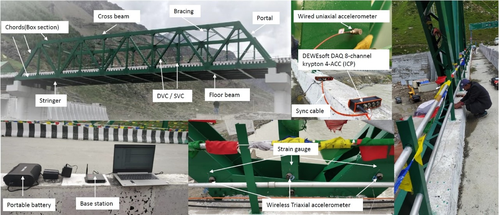Mandi: Researchers at the Indian Institute of Technology (IIT) Mandi have developed advanced Artificial Intelligence (AI) and signal processing techniques to accurately predict the structural health of bridges and other structures.
Bridges play a vital role in India’s infrastructure, with nearly 13,500 of them across the country. These structures undergo natural ageing due to environmental factors like temperature fluctuations, and water and air exposure, compounded by heavy road traffic.
Traditionally, assessing bridge conditions has relied on visual inspections, a method considered inadequate by experts. It falls short in detecting all structural issues and is subjective and time-consuming, involving manual analysis of numerous photographs.
The new deep learning (DL)-based algorithms, developed in partnership with INRIA in France, can identify and isolate structural damages by analysing recorded ambient dynamic responses, all without the need for human intervention.
“We have employed data-driven methods like Machine Learning, AI, and Bayesian statistical inference to estimate a bridge’s health and predict its remaining usable life. This outcome has the potential to reduce risks to infrastructure under operational and adverse loading conditions,” said Dr Subhamoy Sen, IIT Mandi, in a statement.
Temperature fluctuations can greatly affect a bridge’s dynamic traits, especially prestressed concrete, and cable-stayed bridges. It is therefore important to consider these temperature effects in both real-time and AI-based structural health monitoring (SHM). IIT Mandi’s algorithm was rigorously validated on a real bridge in a cold region with extreme annual and daily temperature swings.
To assess the algorithm’s damage detection capabilities, the IIT Mandi researchers initially tested it on an undamaged real bridge. Subsequently, they intentionally induced damage in the computer model to evaluate the algorithm’s accuracy in pinpointing the damage’s location. This testing confirmed the algorithm’s efficacy in identifying structural damage.
IIT Mandi researchers state that these AI-based algorithms have broad applications, not limited to bridges alone, and can be extended to structures such as ropeways, buildings, aerospace structures, transmission towers, and various infrastructure elements requiring periodic health assessments and protection measures.
The findings were recently published in the journals Mechanical Systems and Signal Processing and Neural Computing and Applications.
IANS






